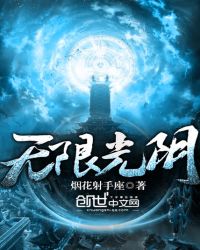CHAPTER XVIII
您可以在百度里搜索“Now It Can Be Told 艾草文学(www.321553.xyz)”查找最新章节!
CHAPTER XVIII
In that winter of discontent there was one great body of splendid men whose spirits had sunk to zero, seeing no hope ahead of them in that warfare of trenches and barbed wire. The cavalry believed they were “bunkered” forever, and that all their training and tradition were made futile by the digging in of armies. Now and again, when the infantry was hard pressed, as in the second battle of Ypres and the battle of Loos, they were called on to leave their horses behind and take a turn in the trenches, and then they came back again, less some of their comrades, into dirty billets remote from the fighting-lines, to exercise their horses and curse the war.
Before they went into the line in February of '16 I went to see some of those cavalry officers to wish them good luck, and saw them in the trenches and afterward when they came out. In the headquarters of a squadron of “Royals”—the way in was by a ladder through the window—billeted in a village, which on a day of frost looked as quaint and pretty as a Christmas card, was a party of officers typical of the British cavalry as a whole.
A few pictures cut out of La Vie Parisienne were tacked on to the walls to remind them of the arts and graces of an older mode of life, and to keep them human by the sight of a pretty face (oh, to see a pretty girl again!).
Now they were going to change this cottage for the trenches, this quiet village with a church-bell chiming every hour, for the tumult in the battle-front—this absolute safety for the immediate menace of death. They knew already the beastliness of life in trenches. They had no illusions about “glory.” But they were glad to go, because activity was better than inactivity, and because the risk would give them back their pride, and because the cavalry should fight anyhow and somehow, even if a charge or a pursuit were denied them.
They had a hot time in the trenches. The enemy's artillery was active, and the list of casualties began to tot up. A good officer and a fine fellow was killed almost at the outset, and men were horribly wounded. But all those troopers showed a cool courage.
Things looked bad for a few minutes when a section of trenches was blown in, isolating one platoon from another. A sergeant-major made his way back from the damaged section, and a young officer who was going forward to find out the extent of damage met him on the way.
“Can I get through?” asked the officer.
“I've got through,” was the answer, “but it's chancing one's luck.”
The officer “chanced his luck,” but did not expect to come back alive. Afterward he tried to analyze his feelings for my benefit.
“I had no sense of fear,” he said, “but a sort of subconscious knowledge that the odds were against me if I went on, and yet a conscious determination to go on at all costs and find out what had happened.”
He came back, covered with blood, but unwounded. In spite of all the unpleasant sights in a crumpled trench, he had the heart to smile when in the middle of the night one of the sergeants approached him with an amiable suggestion.
“Don't you think it would be a good time, sir, to make a slight attack upon the enemy?”
There was something in those words, “a slight attack,” which is irresistibly comic to any of us who know the conditions of modern trench war. But they were not spoken in jest.
So the cavalry did its “bit” again, though not as cavalry, and I saw some of them when they came back, and they were glad to have gone through that bloody business so that no man might fling a scornful word as they passed with their horses.
“It is queer,” said my friend, “how we go from this place of peace to the battlefield, and then come back for a spell before going up again. It is like passing from one life to another.”
In that cavalry mess I heard queer conversations. Those officers belonged to the old families of England, the old caste of aristocracy, but the foul outrage of the war—the outrage against all ideals of civilization—had made them think, some of them for the first time, about the structure of social life and of the human family.
They hated Germany as the direct cause of war, but they looked deeper than that and saw how the leaders of all great nations in Europe had maintained the philosophy of forms and had built up hatreds and fears and alliances over the heads of the peoples whom they inflamed with passion or duped with lies.
“The politicians are the guilty ones,” said one cavalry officer. “I am all for revolution after this bloody massacre. I would hang all politicians, diplomats, and so-called statesmen with strict impartiality.”
“I'm for the people,” said another. “The poor, bloody people, who are kept in ignorance and then driven into the shambles when their rulers desire to grab some new part of the earth's surface or to get their armies going because they are bored with peace.”
“What price Christianity?” asked another, inevitably. “What have the churches done to stop war or preach the gospel of Christ? The Bishop of London, the Archbishop of Canterbury, all those conventional, patriotic, cannon—blessing, banner-baptizing humbugs. God! They make me tired!”
Strange words to hear in a cavalry mess! Strange turmoil in the souls of men! They were the same words I had heard from London boys in Ypres, spoken just as crudely. But many young gentlemen who spoke those words have already forgotten them or would deny them. Now It Can Be Told



